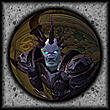| 03-15-09, 09:16 AM | #1 | |
|
A Murloc Raider
Join Date: Mar 2009
Posts: 5
|
|
|

|
| 03-15-09, 09:52 AM | #2 |
|
__________________
Twitter: @IonMaul | Windows Live: [email protected] | Google Talk: [email protected] Last edited by Maul : 03-15-09 at 09:59 AM. |
|

|
| 03-15-09, 10:14 AM | #3 | |
|
A Murloc Raider
Join Date: Mar 2009
Posts: 5
|
|
|

|
| 03-15-09, 10:16 AM | #4 |
|
__________________
What people don't get is that I am, ultimately, an artist at heart.
My brush has two colors, 1 and 0, and my canvas is made of silicon.  Official nUI Web Site: http://www.nUIaddon.com Official nUI Support Forum: http://forums.nUIaddon.com My day job: http://www.presidio.com/ |
|

|
| 03-15-09, 11:47 AM | #5 |
|
__________________
"You'd be surprised how many people violate this simple principle every day of their lives and try to fit square pegs into round holes, ignoring the clear reality that Things Are As They Are." -Benjamin Hoff, The Tao of Pooh  Last edited by Seerah : 03-15-09 at 11:56 AM. |
|

|
| 03-15-09, 12:03 PM | #6 |
|
__________________
Twitter: @IonMaul | Windows Live: [email protected] | Google Talk: [email protected] Last edited by Maul : 03-15-09 at 12:08 PM. |
|

|
| 03-15-09, 12:35 PM | #7 | |
|
A Murloc Raider
Join Date: Mar 2009
Posts: 5
|
thnx
|
|

|
| 03-15-09, 12:46 PM | #8 |

|
| 03-15-09, 12:53 PM | #9 |
|
__________________
What people don't get is that I am, ultimately, an artist at heart.
My brush has two colors, 1 and 0, and my canvas is made of silicon.  Official nUI Web Site: http://www.nUIaddon.com Official nUI Support Forum: http://forums.nUIaddon.com My day job: http://www.presidio.com/ |
|

|
| 03-15-09, 01:01 PM | #10 |
|
__________________
Twitter: @IonMaul | Windows Live: [email protected] | Google Talk: [email protected] |
|

|
| 03-15-09, 01:26 PM | #11 | |
|
A Murloc Raider
Join Date: Mar 2009
Posts: 5
|
|
|

|
| 03-15-09, 02:36 PM | #12 |

|



 it tried your code and it worked perfectly.
it tried your code and it worked perfectly.


 Linear Mode
Linear Mode

